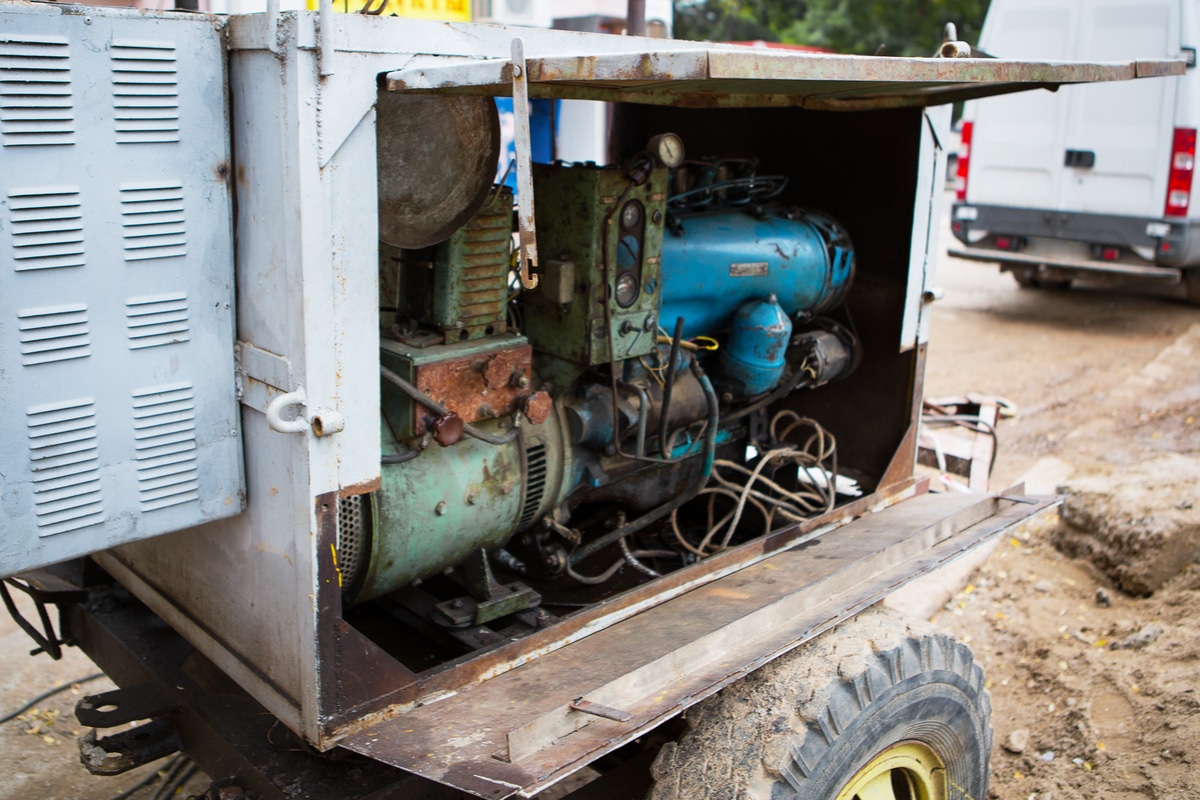When you purchase a generator, the goal is to have a source of power in emergencies. Unfortunately, without proper care and maintenance, generators can fail too.
Therefore, you must take time to inspect your generator regularly, invest in new parts as needed. Also, be sure to test the unit to ensure everything is working efficiently. During your inspection, be sure to look for the signs of a problem that are listed here.
The Generator Has a Hard Time Cranking Up
If your generator refuses to start, it can be extremely frustrating. There are a few reasons this may happen. For example, is there any fuel in the tank? What about the oil level? Some other things to check the fuel system, make sure there is no air in the system.
If you cannot pinpoint the issue, it may be best to get your generator to the professionals for an inspection.
An External or Internal Leak
Usually, it is simple to find leakage. Look around the generator for any fluid that has a film on top. This is either going to be coolant or oil.
If your generator has begun to leak fuel, you could also notice a strong fuel smell. If this happens, move the generator to a better-ventilated area. Look for any punctures, tearing, or cracks in the fuel lines. Sometimes, the loss of fluid may be caused by issues with the storage pan.
Just keep in mind, it may be hazardous to operate a generator that is leaking. This means you need to find the cause and have it fixed immediately.
Low Power Flow
Did you check the generator’s power flow? If the generator does not provide the amount of power it is supposed to, there may be an issue with the master phase selector switch, the control panel, or something else. These are not considered do-it-yourself repairs. The skills and abilities of a professional are needed to ensure everything goes according to plan.
Worn Electrical Components
Most wear on electrical components in a generator will be seen. Some of the top issues include:
- Loose connectors
- Missing, cracked, or worn control knobs
- Frayed wiring or bare wires
Each of these issues may indicate problems with the way the generator is stored, neglect, or wear. Remember, electrical damage can be quite dangerous if you do not have it repaired. It may even lead to you having to replace the generator.
Repair or Replace: What Is Right for Your Generator?
Sometimes, generator issues are easy to fix. However, there are other situations where the problem may be more complex and require more in-depth repair. If this happens, the best thing you can do is to get in touch with the professionals. They will help ensure you get the repairs needed or recommend that you invest in a new generator. Sometimes, this is the safest option.





